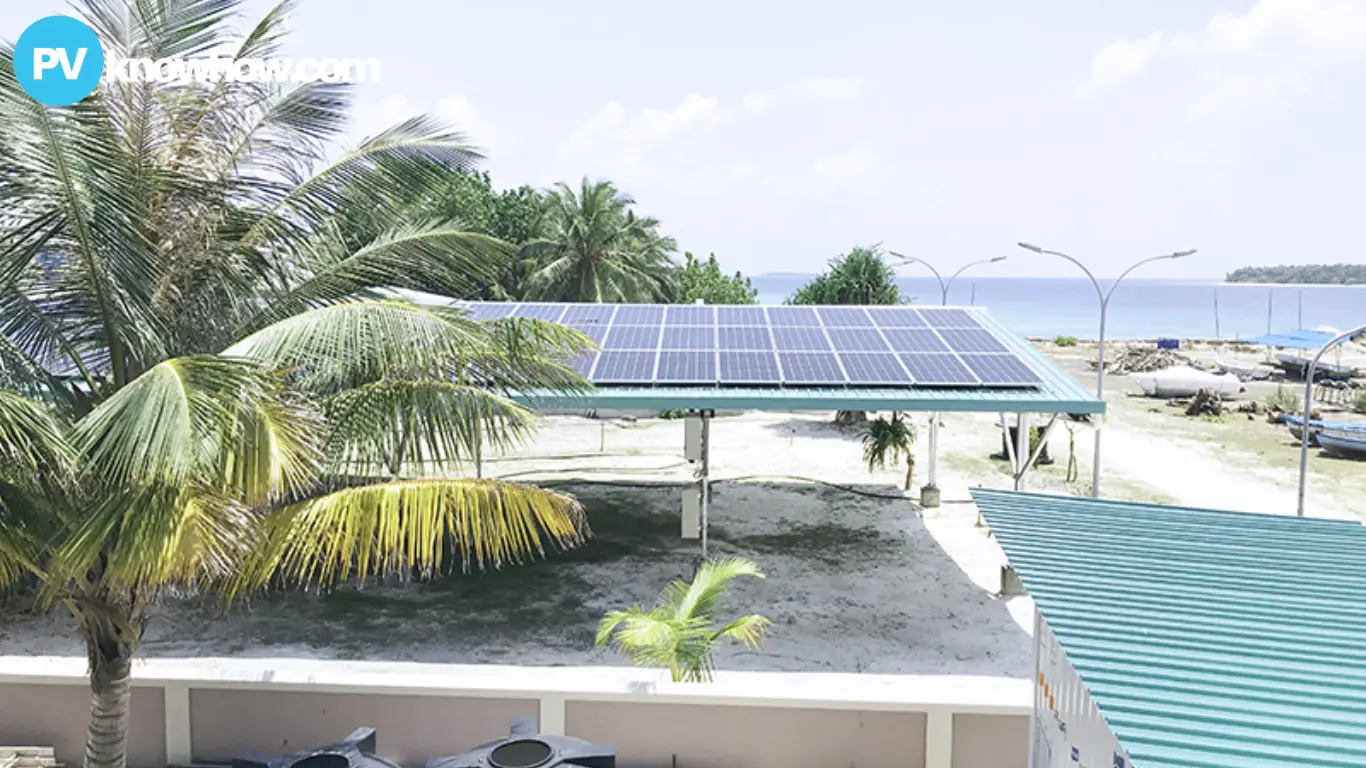The Maldives has achieved a significant milestone in its renewable energy journey by installing 12 solar systems in the Thaa Atoll islands as part of the POISED project. This initiative is projected to save 1.2 million liters of diesel annually and reduce carbon emissions by 3,300 tonnes, marking a crucial step toward a sustainable energy future.
Advancements in Maldives Solar Power
The recent installation of solar PV hybrid systems across 12 islands in Thaa Atoll represents a major leap forward in the Maldives' renewable energy initiatives. These advanced solar systems were inaugurated during a ceremony on Thaa Atoll Kinbidhoo; and it was attended by notable figures such as Minister of Climate Change, Environment, and Energy Thoriq Ibrahim, and Managing Director of Fenaka Corporation, Muaz Mohamed Rasheed. This event marked the official commencement of energy generation from these new solar installations, signaling a significant shift towards sustainable energy solutions for the archipelago.
The Ministry of Environment highlighted that this project involves the installation of 2.5 MW of solar PV hybrid power systems, along with 1.9 MW of battery storage systems. Financed by the Asian Development Bank (ADB), this initiative is part of the broader Preparing Outer Islands for Sustainable Energy Development (POISED) project. With these new additions, the rural Maldives now boasts a solar PV capacity of 67.5 MW. The project's construction phase alone is estimated to save 1.2 million liters of diesel annually and prevent 3,300 tonnes of carbon dioxide emissions each year.
Key Developments in Thaa Atoll Solar Installations
The POISED project aims to transform the energy landscape of the Maldives by electrifying 160 islands with solar PV hybrid systems and battery storage, replacing traditional diesel-powered plants. To date, this ambitious project has been completed in 72 villages, providing a total of 13.4 MW of solar PV and 9.8 MWh of battery storage. This initiative underscores the Maldives' commitment to sustainable energy since 2012, with Thaa Atoll's developments being a significant part of this journey.

POISED project delivers clean solar energy to 72 Maldives islands, cutting diesel use and emissions.
Integrating solar systems with battery storage ensures a continuous power supply, both on and off the grid, throughout the day and night. This approach not only reduces reliance on fossil fuels, but also mitigates environmental degradation. The Fenaka Corporation has played a crucial role in equipping homes in Thaa Atoll with these solar systems, reinforcing the government's commitment to clean energy and carbon emission reduction.
Sustainable Energy Initiatives and Prospects
Building on the successes of the POISED project, the Asian Development Bank's Accelerating Sustainable System Development Using Renewable Energy (ASSURE) program seeks to further scale up the deployment of green mini grids. This program aims to attract more private investment in renewable energy, thereby enhancing sustainable energy production in the Maldives. The Ministry of Environment is actively inviting investors to participate in this transformative initiative.
The Maldives government has set an ambitious target to generate one-third of the nation's electricity from renewable sources within the next five years. A series of new initiatives have been announced to achieve this goal, significantly bolstering the country's energy security and environmental sustainability. The Thaa Atoll solar installations, funded jointly by the ADB and implemented under the POISED project, are a key part of this shift.
These solar systems not only reduce diesel consumption but also ensure a stable electricity supply, even in remote island environments prone to power outages. Project manager Vikram Bawa emphasized the economic benefits of these installations, noting that they are crucial for the Maldives' economic sustainability and its efforts to lead by example in the transition to green energy.
In collaboration with the Asian Development Bank and funded through the Climate Investment Funds, the Maldives government has launched the Shared Renewable Energy Programme. This initiative aims to build community awareness and support for environmentally friendly and sustainable energy infrastructure across the nation.
In summary, the installation of 12 solar systems in Thaa Atoll represents a significant milestone in the Maldives' journey towards renewable energy. This initiative not only reduces carbon emissions and diesel consumption but also enhances energy security and economic sustainability, positioning the Maldives as a leader in sustainable energy development.
